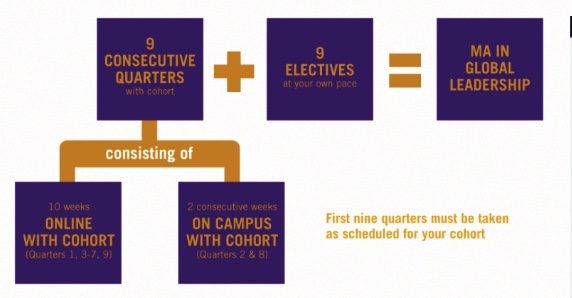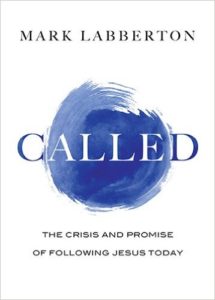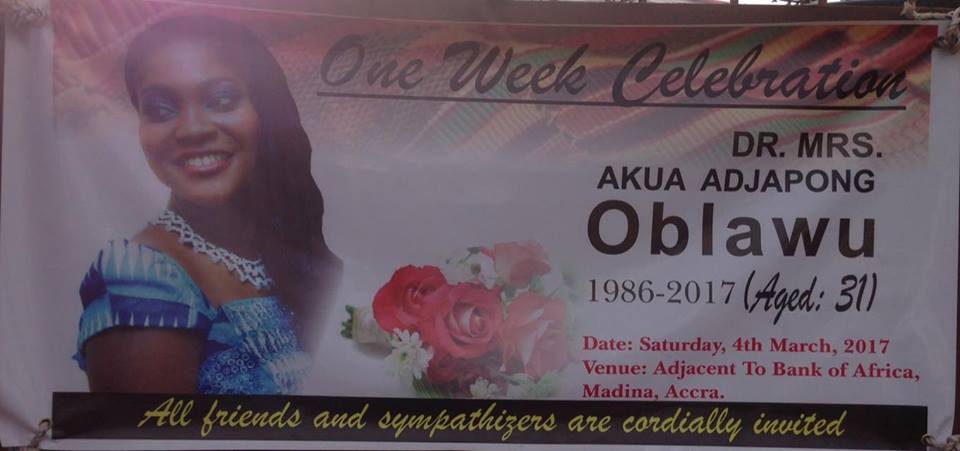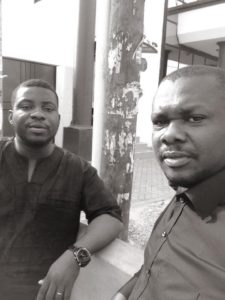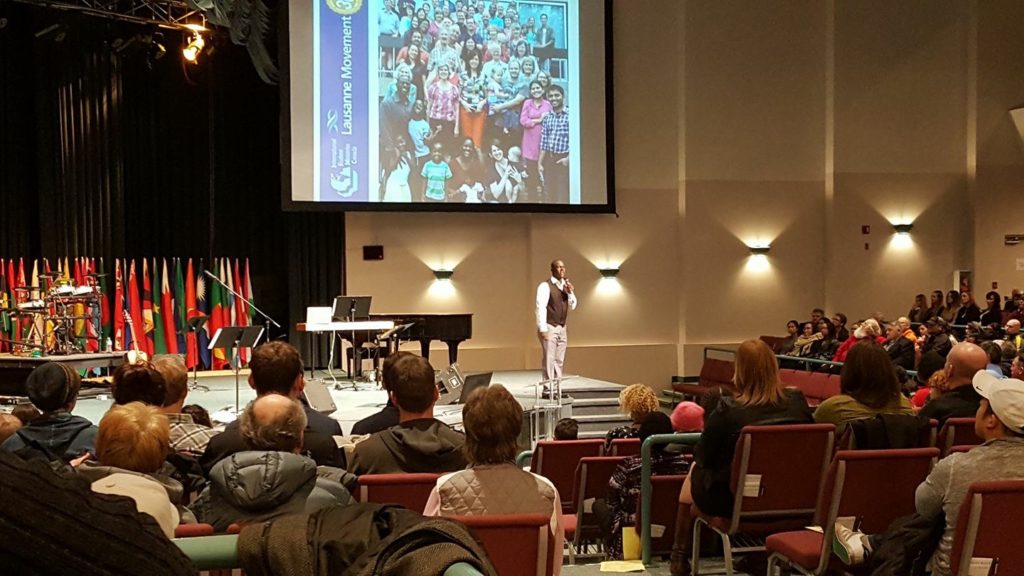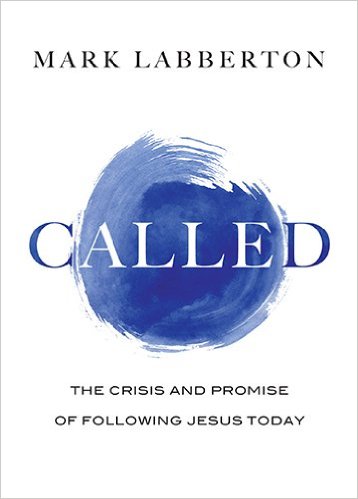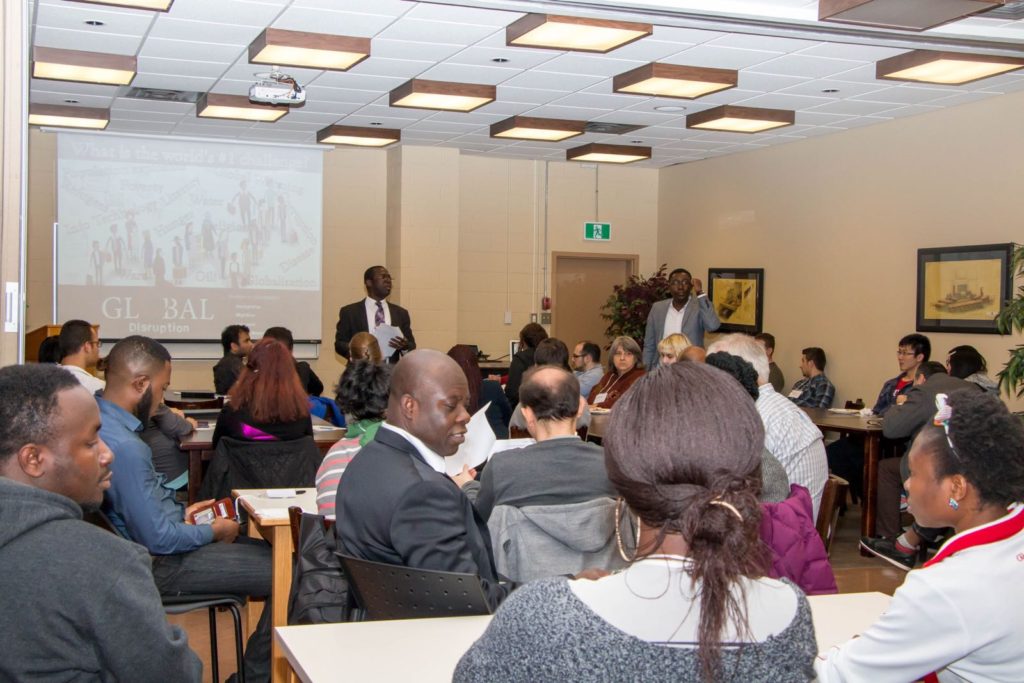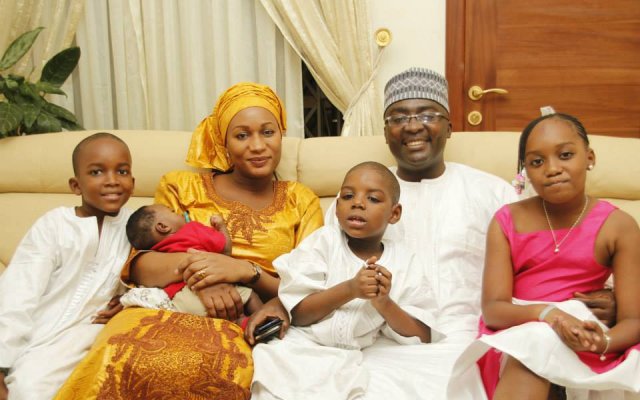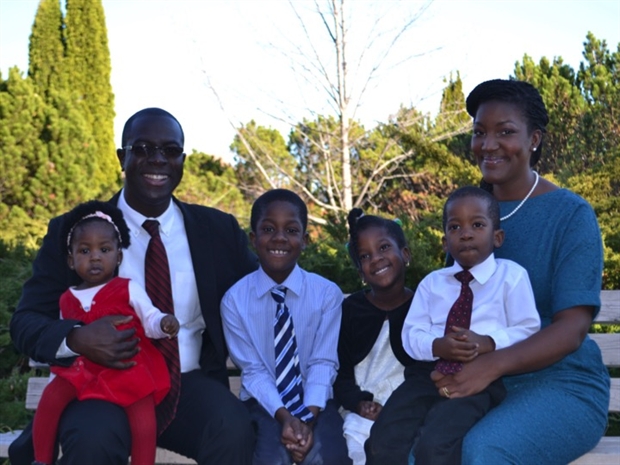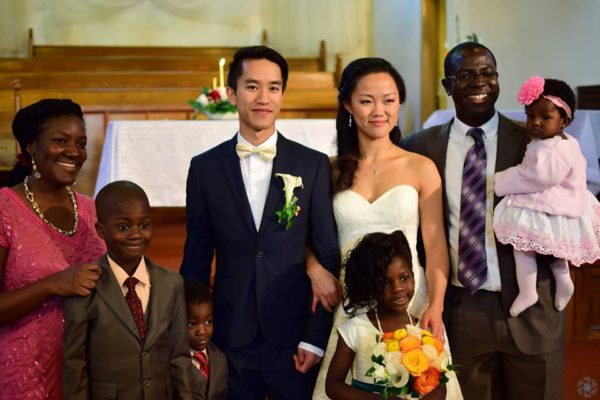Life begins BEFORE 40, for sure!
On 16th March, 2017, I turned 39. I give thanks and praise to God! Yet barely 24 hours prior I was a little discouraged. No, not a midlife crisis 🙂 My disappointment came from discovering a negative CAD 4,839.01 hole in my ministry account. I’ll tell you why.
THANK YOU FOR 38TH
All thanks and praise to God, last year around my 38th birthday we launched a campaign to raise $10,000 between March and June for all the Lausanne Movement assignments thrust upon me in 2016. And guess what? WE DID IT! Thanks to people like you, we raised slightly more than the $10k target and I was not only able to fulfill all the Lord’s tasks in Europe (Czech Republic), North America (US/Canada), Africa (Ghana), Asia (Indonesia), and Latin America (Panama) but was even able to do a couple of these missions with my dear wife and partner for life, Anyele. Thank you! Thank you! Thank you! The seeds sown from those initiatives are still blossoming and bearing fruits.
AND NOW…
As I enter my 40th year of life this week I’m already thinking LEGACY—how you and I will be remembered after we’re long gone. How will our lives continue on, even though we are dead? Martin Luther King Jnr. died at 39, at my age today, shot in the jaw while readying himself to lead one of his characteristic civil rights marches. What if Luther King had said, “Life begins at 40?” His short life but long legacy is still celebrated today, decades later, all over the world.
For a 40th year legacy project, my aim is to raise CAD 40,000 ($4,000 for every decade of my life) over the next 24 months, from 16th March 2017 to 15th March 2019 for what I believe is the greatest legacy you and I can ever leave: godly, effectual global servant-leaders deeply transformed to transform nations and generations. This means raising only CAD 1,667 each month for the next 2 years. Will you contribute to the President’s Scholarship for Global Leadership?
One of my favourite leaders, Peter Scazzero, author of The Emotionally Healthy Leader, puts this task bluntly: “We must train the next generation for leadership. The world population is now 7.2 billion people. It will be 8.5 billion in 2030 and 9.7 billion people by 2050. Think about that: We will add 2.5 BILLION people in the next 33 years! Who will be the apostles, prophets, pastors, teachers and evangelists to equip these additional 2.5 billion people?” And to think that even today there are 3.5 billion people in our world still to be transformed with the Gospel of Jesus Christ! Each of us will need to reevaluate our lives and adjust our “wineskins and priorities to meet this acute need.” WHO will you contribute to this task?
STARTING WITH ME
I am offering the ‘second half’ of my life as a living sacrifice to God and you for this task. Half of this CAD 40,000 will be an investment in Yaw Perbi towards academic rigour, deeper spiritual formation and reflective praxis so I may ‘reproduce after my kind’ for the task unfinished.
It has been nine years since surviving that fateful accident in Cote d’Ivoire (above) after which I felt the Lord calling me to fully devote my life to preaching the gospel and raising younger leaders. And “I was not disobedient to the heavenly vision.” Thus far, there has been no formal academic training in theology, missiology or leadership. There surely has been a lot of on-the-job learning and doing from a place of clear calling, vision and pure passion. It is now time for critical reflection of self and praxis, solid biblical theological training to undergird my call and academic rigour to complement what is already natural and supernatural about this calling.
AM I WORTH THIS INVESTMENT?
So, a few months ago I took the plunge and was accepted into the prestigious Fuller Seminary’s Master of Arts in Global Leadership. Having been pouring and pouring into others, it was refreshing to put together a comprehensive Learning Plan for myself. It has been a rich soul-searching experience for one who is more of a doer than a reflector. My transformation is affecting everything about me including slowing down for loving union with Jesus and leading out of the strength of my marriage. The organisations I lead are on the path of deeper discipleship and emotionally healthy leadership as a result.
And you know an investment in Yaw Perbi affects tens of thousands more. Only last week, a reflection I did on “When Life Doesn’t Make Sense” based on some of my MAGL learning so far reached over 30,000 people on FaceBook and over 26,000 hits on my personal website! You decide; if investing $20,000 in me is worth it or not. With the aforementioned example alone, that’s less than $1 investment per person impacted!
QUALITY EDUCATION IS COSTLY
Fuller is no doubt ‘the Harvard of seminaries,’ with a 70-year record of producing great leaders of our time like Rick Warren. With 4,000 students enrolled online and on 7 campuses from 90 countries and 110 denominations, Fuller is the largest multidenominational seminary in the world!
A course at Fuller costs USD 1,200; it isn’t cheap. I have negotiated a deal for ISMC so that any of our staff could get a 30% discount, bringing this amount to USD 840. Unfortunately, the drop of the Canadian dollar to the US dollar by about 30% sends us back to paying nearly the same USD 1,200 still. The MAGL consists of 9 core courses taken in sequence with the rest of my cohort from around the world and 9 electives, resulting in a total of USD 15,120 or CAD 19,656 (not counting books and travel and lodging expenses over the two years).
So far, I have invested nearly CAD 5,000 having taken 3 courses (including one on-campus session) and scored A+ in each! Praise God! That largely explains the gaping -$4,839.01 hole in my ministry account from which I serve the cause of international students globally and from which I get paid!
THE ASK—A GIFT THAT KEEPS GIVING
The other half of this legacy project is to provide SEED to invest in other staff and international students towards their leadership development including setting up a Global Leadership Incubator and a Leadership Institute. The task unfinished is great and urgent!
I invite you to give to the President’s Scholarship for Leadership. If 17 people sign up to give CAD 100 monthly we’ll meet the full target in 24 months. You may also decide to sponsor me for a whole course (CAD 1,200). If you have access to a foundation or other scholarship scheme that can offer grants of multiple thousands of dollars that will be awesome too. Please let me know.
Whatever you do, please make some contribution to the day of my birth and the birth of many multiple global leaders as a result–a gift that keeps giving towards the task unfinished.
Thank you for investing in hundreds of thousands of lives to begin and flourish before 40! Give HERE.
CONFESSIONS OF THE CALLED (#4) : Don’t try this alone!
When it comes to calling/vision, I used to erroneously say things like, “Don’t listen to what other people have to say. After all, they weren’t there when God spoke to you.” How wrong I was. I repent.
“TO BE OR NOT TO BE?”
As I celebrated my birthday last week somehow I found myself going through some old emails dating back to 2008. I almost got ordained as a pastor that year. Almost. God spared me inflicting this upon myself… and on y’all 🙂
Back then I was still practicing medicine as a military captain with the United Nations Operation in Cote d’Ivoire and had survived a fatal road traffic accident, in which I lost two of my colleagues, barely three weeks into our peacekeeping operation. The miraculous circumstances surrounding my deliverance convinced me beyond any shadow of doubt that GOD had spared me, yes, but for a purpose beyond Medicine. I wanted to give the rest of my life totally to the preaching of the good news and the good life in Jesus Christ and raising younger leaders to do same. If my fervour for God and His kingdom had been a 7/10, it cranked up to 9.5/10 after the accident. Understandably, after such a near-death experience I became crazier for God, with white-hot intensity and with such a sense of urgency about life and mission.
In the midst of all the crazy schedule of doing my medical and military duties for the U.N., I would go to the Universite de Bouake at least twice a week to teach, go into the community to minister–like visiting someone the rebels had captured and jailed, seeing to the total transformation of the dignity of Salimata (picture on left) by getting her dentures, raising capital for business for an AIDS patient etc.
My favourite thing was to preach during our Ghanmed 5/Ghav 10 church services and at local churches. It is little wonder then that the head pastor of one of these churches strongly felt I should be officially ordained as a pastor. After all, I was doing the work anyway—perhaps even better than those who had the official recognition as such.
Everyone was excited—from my Commanding Officer to ‘the least of these.’ A date was set, preparations and decorations were made; my clerical collar (that stiff, white dog collar that reverend ministers wear) was procured, my measurements were taken for my special-collared shirt to go with it… refreshments for the party…
Everyone (and everything) was ready except the most important people in my life: my wife, my best friend and one of my pastors. It is their emails I referred to earlier. These three people had no doubt God’s hand was upon my life and that God had a calling for me but none of them was convinced it was either the time or the place for ordination as a pastor. I was deeply conflicted. On hindsight, they saved my life—and by extension, that of many people.
I must confess I’m a skeptic when it comes to Western Christians’ understanding and practice of anything communal. Unfortunately having been schooled in Western ways and lived in North America myself I have become even more individualistic than my home (African) culture. So I longed for a breath of fresh air when I picked up Mark Labberton’s book, Called, but I was cautiously optimistic. “What does an American writer, from a generally individualistic society, have to authentically and practically offer toward communal calling?” I wondered. I was not disappointed.
The author not only clearly agreed with my observation about individualism but also my concern regarding how community is needed to accurately decipher a call of God on one’s life: “Community should be a natural cornerstone of life as a Christian disciple; we’re meant to be a part of the community of God’s people. After all, Christian disciples can’t live faithfully by themselves, and we seldom hear the call of God alone. Biblically, the call of God is inextricable from the community of God’s people, yet the church in the United States is rife with evidence that the church seeks and avoids community, just like the culture around it” (80).
DON’T TRY THIS ALONE
“We seldom hear the call of God alone?” Wow! Indeed, this is the way Sherwood Lingenfelter puts it in his work, Leading Cross-Culturally: “To have effective, compelling vision for ministry, the kind of vision that will motivate people to follow, the Christian leader must have a deep and intimate walk with Christ and listen to and be filled with the Holy Spirit. But even more importantly, this vision must be tested in the community of the body of Christ, refined by the participation of the body in shaping it, and then mobilized by the body in prayer and action.
Back to Labberton: “The process of understanding the Spirit’s guidance is best done in community. It isn’t a private act of discernment but one that emerges as we live in relation to brothers and sisters who help lead us to listen to our own hearts and to listen for God’s. To do so wisely and not self-servingly or distortedly, we need friends in Christ who share in this process of listening and trusting. Together we are the dwelling place of the Spirit” (140).
Oh! How many people, especially young people, would’ve saved themselves, and myriads more, heartaches, disillusionment and destruction had they tested their ‘calling’ in the crucible of community. Man, don’t try this calling thing alone without a discerning community. And community is “where two or three come together in Jesus’ name.” That may very well be just you and your spouse. If I sense a ‘call from God’ that my born-again, Spirit-filled wife strongly disagrees with I will have to take a serious pause for profound prayer and further consultation. And how much better when my spouse, plus my accountability friend and my spiritual director are all in sync!
Strong ‘Type A’ personalities like me find this assertion that calling is best discerned in community very hard. But that is the way to go, God’s way. I’m eager to share what else God’s word, Labberton and others have to say about this in my next blog. For now, go ahead and tell me what you think so far.
IN LOVE WITH ANOTHER WOMAN
What if it’s really NOT “a man’s world” as much as we think and neither is God a He?
This is the morning after. I woke up yestermorning in love another woman. And I didn’t even realise till much later after sunrise when both people and birds alike began to tweet that the day was special: International Women’s Day (IWD). Just as well!
In my readings that morning—which had nothing to do with IWD but an attempt at chipping away at some assignment from my Master’s programme—I was impressed by Deborah. I fell in love with her. For those who think multi-tasking and role conflict is a (post)modern phenomenon, think again. Debbie was leading Israel as a prophet, a wife, and a judge (she reminds me so much of Ghana’s first and only female Chief Justice—ayekoo, Auntie Georgina! another mother of mine). By the way, those who use the Jewish Bible to veto women’s right and female leadership might need to be reminded that those same Jewish people in the 1960s elected a woman, Golda Meir, as their fourth prime minister. Incidentally, there’s something about March and women—she was elected on March 17, 1969, after serving as Minister of Labour and Foreign Minister. A feat the United States of America wouldn’t, or rather couldn’t, do with Hillary Clinton in 2016.
But I digress. Back to the woman I fell in love with yesterday, Debora. Not only were the masses going up to her to have their disputes decided, when she would send for prominent men like Barak (not Obama—but could very well be if she were living today), they would show up and she will command them what to do (I can see some men squirming already).
WHEN A MAN ___ A WOMAN
What did you fill in the gap with? Did you say, “When a man loves a woman”? If you did, I’m not surprised. There’s hardly a romantic song more popular than that Michael Bolton hit yet as I read about my newfound love this International Women’s Day I wondered why When a Man NEEDS a woman is not sung much? I don’t know if anyone has put a tune to lyrics like that (educate me!) but the Barak fella I was telling you about, wouldn’t even go into battle without Deborah! She was that powerful.
Despite a clear instruction from God to the warrior, hear his plea to Deborah: “If you go with me I will go, but if you don’t go with me, I won’t go.” Although “When a loves a woman” seems to be such a complimentary song to the fairer sex, I dare say, “When a man needs a woman” would be even more honouring. Especially, when it has nothing to do with romantic butterflies in the stomach! Surely, there’s more to a woman that eros? Was Barak a weak man or a wise man? We’ll soon find out.
GOD TOO?
I have a thing for women. And it seems I’m in good company. God too. Time and space won’t allow me to run through all the ways women are honoured throughout Scripture but what if I told you God was a She?
During IWD I had thought of throwing a social media challenge to dare all my friends to refer to God as She yesterday, only yesterday, to see their reaction. Maybe another day, DV. The first time I heard someone refer to God as ‘She’ I fumed! There must have been smoke coming out of my ears and nostrils! But stop to think about it for a moment.
Incidentally, while I was tossing and turning this thought about in my mind I received the latest publication of a Jewish organisation whose board I serve on with the same issue being addressed. Rich Robinson began his Jews and Gender article by sharing a jabbing story.
“I took a class in theology once, the kind where the professor had an exotic (to an American) Scottish brogue and brought a unique viewpoint to nearly everything. The day came when someone asked him, “Why is God always described as ‘he’ in the Bible? Why isn’t God ‘she’? How come God isn’t female?”
The Professor thought for a moment and then gave a succinct two-word answer: “He is.”
Wow! It is true that while more often than not God is typically depicted in masculine terms (father, king, warrior, bridegroom) there are also several places in Scripture where God refers to Himself in female terms. For example, “As one whom his mother comforts, so I will comfort you…” (Isaiah 66:13). How about this one, “Can a woman forget her nursing child, that she should have no compassion on the son of her womb? Even these may forget, yet I will not forget you…” (Isaiah 49:15-16).
Sometimes you have God as both father and mother in the same breath, like “You were unmindful of the Rock that fathered you, and you forgot the God who gave you birth [mothered].” (Deuteronomy 32:18) Another masculine and feminine imagery of God together in the same space is this: “The LORD goes out like a mighty man, like a man of war he stirs up his zeal, he shows himself mighty against his foes. For a long time I have held my peace; I have kept still and restrained myself; now I will cry out like a woman in labor; I will gasp and pant” (Isaiah 42:13-14). I will suggest you read Robinson’s the full article here. It just might shift something in you.
While (post)modern feminists, fundamentalists and theologians debate these gender issues, I find it interesting that my dear (and only) wife’s tribe in Ghana, West Africa, the Ga people, have for ages rightly referred to the Almighty as “Ataa Naa Nyomo,” Ataa (male) and Naa (female). Translated, “Father-Mother God.” Ironically, Prof. Mercy Oduyoye states, “The older understanding of God as both male and female…has been lost in modernity.”
SO GOD IS A WOMAN?
So is God a man or woman? Is He bisexual? Or is He all the 58 genders on Facebook (I bet you didn’t know that!)? Two things: First, God is God. He is beyond gender. But secondly, God created mankind is in His own image—male and female. It takes both genders to properly display God’s full image and glory. One gender is woefully inadequate to express God’s image; just as one race is grievously insufficient to display His full picture.There are strengths male men have
As with all personalities and groupalities, when it comes to gender as well there are strengths that male men have that female men don’t and vice versa. When we get into the fights about who’s better or weaker, we miss the point. Some people’s left hand is weaker or less dextrous than their right; for others (like my mother and sister), it’s the opposite. But all of us will agree that we’re better off with both. And o, even to be ambidextrous!
MAN ENOUGH; GOD ENOUGH
Today, I honour all the women in my life for making me a fuller man—my wife, my sisters, mentors, mates, mentees and co-workers. As for my mother, I wouldn’t even be a man at all—not even born in the first place—but for her. Every man came from a womb-man. And for those women who are still underpaid, be assured, the day will come when those who undermine you will be payed back their due and more.
I am man enough to say I need a woman. And you? Are you woman enough to say when you need a man? As for God, don’t worry about Him. He is God enough to stomach all our gender nonsense. Again you ask, “Is God a female?” “He is.”
WHEN LIFE DOESN’T MAKE SENSE!
In a world replete with success philosophy and prosperity preachers, how does one make sense of life when tragedy hits and one has no mental framework or faith construct to deal?
Man! February 2017 was one nasty month—humanly speaking. Tragedy upon tragedy. Within a week a friend and co-worker gets a stroke in Canada, a mentee loses her grandfather in France, another (a former international student in Belgium) loses her dad in Ghana… and then, as if these weren’t enough, the month wouldn’t end without the loss of a friend, a younger medical colleague in Ghana!
In fact, today is the ‘one-week celebration’ of the latter (picture above). Man! Akua was barely 31! I remember her beautiful countenance, not only from her internship days at the 37 Military Hospital when I was a medical officer there, but even only last November (2016) while I was in Ghana I had the joy of seeing her in her home. What had happened was that my bosom friend and brother Ben had urged me to come along with him to visit a school mate of his (and fellow church member) who had recently suffered a stroke. Prior to that I had no clue it was Akua’s home we were visiting—and that she was the young wife of Kofi. (As it turned out later, Kofi is actually the classmate of my wife, Anyele, from primary school).
My heart sank when I saw this hitherto strong young man, Kofi, wheelchair-bound and struggling to utter a few words from a seriously contorted face. This young man who was working in the insurance world had barely been married a few months when he suddenly had this stroke. Not even surgical interventions in the United Kingdom had salvaged the sad situation. Yet it was gratifying to observe his faith and how strongly supportive his young bride had been from the beginning up until the day I visited them, nursing him with love. The smart, pretty doctor now had a husband for a live-in patient.. O boy did I pray my heart and lungs out!
So imagine my shock last week. I had missed a phone call in the midst of busy travel. When I finally got to call back the conversation went something like this.
“Yaw, do you remember Kofi whom you prayed for?”
“Aha, of course.” (They say fear and faith don’t mix–well, at that moment I had both somehow.)
“Kofi’s wife just died!”
“Huh? Ben, what are you saying?”
“Yes oo, Yaw. Kofi’s wife, Akua, just died!”
“What?!!What’s going on?!” …
BRINGING IT HOME
Silence. Sadness. … Sometimes, life just doesn’t make sense and it would be interesting to hear what strictly-prosperity preachers have to say to these things. As for atheists and agnostics, I don’t know how they make it through life but for me, without God there is neither hope nor any sense to life. Yet then again, like David Bosch puts it in A Spirituality of the Road, “A god who provides all the answers becomes an explicable and comprehensible god, but also ceases to be God.” Bosch continues to share about an Albert Schweitzer (French-German physician and theologian) experience:
“Albert Schweitzer, in recollecting the ten years he taught catechism classes to boys in Strassbourg before the First World War, noted that after the war some of those young men thanked him that he had shown them so clearly that the Christian faith does not explain everything. This awareness enabled them to survive spiritually in the trenches, whereas many others, who were told that Christianity provided all the answers, lost their faith when faced with that which was inexplicable.”
But this was my shocker: the story of a piece of paper found among the ruins of the Jewish ghetto in Warsaw after the Second World War. It is said to contain the last words of a certain Jew, Jessel Rakover, as he was preparing himself for an impending violent riot aimed at the persecution and massacre of his ethnic/religious group. The portion of Bosch quotes in A Spirituality of the Road gives me the chills. Here goes:
“I believe in you, God of Israel, even if you have tried your best to dissuade me to believe in you. I believe in your laws, even if I cannot approve of the way you manage things. … I bow my head before your majesty, but I will not kiss the rod with which you hit me. … I would like to say to you that at this moment, more even than in any previous period of our eternal struggle for survival, we, the tortured, the humiliated, buried alive, burnt alive, insulted, mocked, we, murdered by million, that we have the right to know: until when are you going to allow it to continue? …I say this to you because I believe in you, more than ever before, because I know now, with absolute certainty, that you are my God, because you cannot be the God of those whose deeds are the most horrendous expression of godlessness; … I die in peace, but not appeased; persecuted, but not enslaved; embittered, but not cynical; a believer, but not pleading; a man who loves God, but does not say amen to everything. I have followed God even when he had flung me down, tortured me, and made me an object of humiliation and derision. And these are my last words to you my angry God: all this will do you no good. You have done everything possible to destroy my faith, yet I am dying precisely as I have lived, saying: ‘Shma Yishrael, hear, O Israel, the Lord is our God, one Lord.’ Into your hands, O God, I commit my spirit.”
WHAT WILL YOU DO?
Are there any more persons on earth who have such stubborn faith? Any of the Augustine stock who would say, “For it is better for them to find you and leave the question unanswered than to find the answer without finding you”?
I just got off the phone this morning with a young man who lost two of his sisters in a tragic car accident a few years ago—and their father is a world-renowned preacher who as at this very morning was still doing his Lord’s bidding in London, UK. That day, apart from the two teenage girls, four other church members lost this lives. I knew and loved those dainty girls, especially the 19-year old whom I had grown fond of since her high school days! Tell me, how many preachers have a theological framework that can contain such inexplicable tragedy?
It is easy to talk about tragic Job and weeping Jeremiah or even Jesus whose life was cut short at 33. But as the Japanese theologian Koyama challenges, “Jeremiah and Jesus place their trust in the forsaking God! There is no longer the faith built upon God’s obvious answer. They believed in God even though God did not answer! … Here we do not see an answer-theology. We see instead a relationship-theology.”
I ask again. In a world replete with success philosophy and prosperity theology, how does one make sense of life when tragedy hits and one has no mental framework or faith construct to deal with it? Who is willing to “place their trust in the forsaking God” in a ‘God-forsaken’ place? This is hard; but such is life.
CONFESSIONS OF THE CALLED (#3): One more reason why reversal is suicidal
An immediate advantage I perceive in all of us clearly seeing and understanding that the first and most important, albeit general, call is to love God and people is how that takes away the pressure (and guilt too) that many of us feel to not only find God’s specific will for us, but even to be “in the centre of God’s perfect will.” Phew! Labberton is spot on here, that “Without any special guidance from the Holy Spirit, with no anxiety or worry, and with utter confidence, we can daily pursue these first things as our primary vocation.” Amen!
We already started talking about why reversal of first things (primary, general purpose) and next things (specific, unique purpose) is suicidal. Here are the three reasons I enumerated. We:
- miss the point
- miss the priority
- miss the person
The first two were dealt with in my last blog; I saved the best for last.
MISSING THE PERSON (IDENTITY CRISIS)
When we get so focused on a specific calling to be a teacher or carpenter or whatever, we tend to lose our primary identity as beloved children of God and rather define ourselves by what we do. We are not our jobs; we are bigger than that. In other words, we set ourselves up for an identity crisis when don’t get our primary purpose going first—and going well, for that matter.
Labberton puts it this way: “This is a classic tangle and fails to give full weight to what really matters most. So we go to work and forget or neglect who we are, and what our life is really about, how we seek to love and serve. We enter the subculture of our activities, and soon that reality begins to define and shape us, rather than the other way around” (89).
THE THREAT AND STRUGGLE IS REAL
I remember both the crisis and promise of being a new immigrant in Canada and the constant temptation to prove myself, especially as a minority (black man) financial advisor in an Anglo-dominated arena and having to meet certain quotas in order to win recognition, awards and to be regarded as among the elite. One day, I was both inspired and compelled to augment my personal mission statement with the following: “I am who God says I am irrespective of what I do/don’t do; irrespective of what I have/don’t have.” I still have that as part of my personal mission statement.
Have you noticed that the first two of Jesus’ three temptations were go get him to “do something” to prove his identity? “If you are…then…” What a sharp contrast with the heavenly Father’s affirmation of him just a few verses earlier during his baptism: “This is my Son, whom I love; with him I am well pleased.” Up until then Jesus had done ‘nothing’ but obeyed his Father’s will. One would even wonder if he had yet ‘found his purpose.’ This was not God’s beloved preacher or teacher or carpenter… just His beloved Son. Period!
“Our first vocation is to be the beloved. The primacy of God’s unearned love alone makes this possible. We live as the beloved, the treasured. This vocation is pure gift….” says Labberton.
I find Henri Nouwen’s 17-minute expose on “Being the Beloved” so straight to the heart. You might find it reassuring too. Watch here.
Why are we so concerned about what we do when everything first flows from who we are. It’s become cliché now that “after all, we’re human beings not human doings” but we still live like the latter, don’t we?
In Called, my seminary President is emphatic: “We start recovering our call when we learn which first things are first. The love of God in Jesus Christ is the supreme first thing; no one and nothing rivals or surpasses this. If we want to know ourselves and why our life matters, the Bible’s advice is to know our Maker, who knows and loves us fully.”
And then he beautifully continues thus, “We matter, and our calling matters, not because we’re the supreme test of anything but because we exist for the joy and satisfaction of our Maker, whose love alone enables us to flourish… Our vocation will involve work and labor, and that has its meaning and value. But we are “very good” in God’s sight because of bearing God’s image—not because we are fruitful and multiply (Genesis 1:28) but just because we are.”
TIME TO RECALIBRATE
When helping people to find their specific, God-given purpose a very useful tool (learnt from Rick Warren) has been to help them discover their SHAPE: Spiritual gifts, Heartfelt passions, Abilities (talents), Personality and Experiences. This is wonderful! However, again, the danger of reversal of first things is this: “If we try to settle the issues of calling through the lens of our strengths and weaknesses, our preferences and dreams, we will be prone to overreach (because we make ourselves and our desires the ultimate measure) or underreach (because we’re willing to allow ourselves or someone other than God to tell us who we are). Over the course of our lives, neither works well or leads us to the truth.” (Labberton) And that, my friend, is suicidal.
In conclusion, “This is, of course, why Christians believe that coming to faith in Jesus Christ matters so much—not because it’s like handing out a “get in heaven free” card, but because it’s like offering an invitation to know yourself through the love of God in Jesus Christ, a gift that will change how you understand your identity and therefore how you live both now and in eternity. Knowing ourselves and knowing God are inseparable” (Labberton).
I love Eugene Peterson’s translation of Ephesians 1:11: “It is in Christ we find out who we are and what we’re living for.” May I dare even rephrase this as, It is in Christ we find out we we are THEN what we’re living for? Not getting this first thing first messes up everything; E-V-E-R-Y-T-H-I-N-G!
CONFESSIONS OF THE CALLED (#)2: Why Reversal is Suicidal
RESETTING THE STAGE
So Mark Labberton, author of Called, argues that Jesus’ two-word directive, “Follow me,” is the primary call that creates and defines our vocation (Labberton 2014, 9). While this seems basic it is quite revolutionary. This is not the approach or content I had anticipated from the title of the book. The heart of God’s call is this, Labberton seems to proclaim, that we receive and reciprocate the love of God for us—directly back to him first and indirectly to our neighbour. Indeed Jesus, quoting from to the Torah, made it clear that the greatest commandments are to love God and love people, period! This is our primary twin-call.
And I happily accept that. I also concur that whether or not we’ve discovered any specifics to our purpose in life we should live out this first thing. We even agree that this specific, unique God-given purpose should be “aspects of our call [that] assume first things but then move us in particular contexts of work or ministry, of friendship or marriage, of service or advocacy, of imagination or analysis. The next things may take the form of jobs (and often do), or they may be acts of volunteer service. This is where the convergence of gifts, talents, education, opportunity, passion and more draw us towards jobs or service that can seem deeply rewarding.”
When it comes to the specifics, however, I believe that Jeremiah was not an exception; that God saying of him that He knew him and fashioned him in the womb for a specific purpose applies to each of us too. Otherwise, for instance, why do each of us have unique fingerprints?
So yes, I grapple with my seminary president’s assertion that “Beyond these first things, God [only] sometimes has next things” because I still believe he always does for everyone. That notwithstanding, I immediately see the dangers he points out of not keeping first things first (pursuing our primary call of loving God and loving people) and rather seeking custom-made next things first. Reversal of first things and next things is not just counterproductive in the end; I dare say it is even suicidal. Here are three reasons why (which I’ve summarised and coined in my own typical alliteration fashion). We:
- miss the point
- miss the priority
- miss the person.
I will dwell only on the first two dangers here (in order to keep this blog short and sweet) and highlight the last one (potentially the worst; and the lengthiest) in the next installment, DV.
1. MISSING THE POINT
We are not here for us—we are here to please/glorify God and bless humankind. What is the point if we discover that we are uniquely shaped to, say make music, and yet end up using it in a way that offends our creator and/or exploits our fellow human beings? There are many celebrities who have obviously discovered their gifts and talents (specific God-given purpose, if you like) but who are still far away, so far away from their primary call to love God and people, or in the words of Jesus, “Follow me.” What if even our ‘calling’ or ‘career’ now rivals our primary love for God?
I think of many people who say they’ve discovered their calling, let’s say to be medical doctors, but whose attitudes stink—are they really living out their God-given purpose then? How about the one who is an obviously gifted public servant and yet is corrupt to the core? Does she not make a mockery of her primary purpose in the midst of executing her specific, secondary call? What’s the point?
On the other hand, “If we embrace and practice our primary calling to live as followers of Jesus,” Labberton posits, even “in the most practical and ordinary contexts of our lives, the meaning of our secondary call will more likely occupy its appropriate place and will bear the weight and priority that is formed by what matters most” (169).
Again, “If and when we come to a particular setting or work that especially suits the way we’ve been made or to work on the concerns or passions we want to give our strengths and energies to, we bring to those settings far more of what they need than just good talent or interest. We bring something of the kingdom” (170).
2. MISSING THE PRIORITY
First things trump everything. As Labberton puts it, “In Scripture, God seems far more passionate about first things—how we live and love and our neighbor—than about next things—what our set of daily tasks is. At the same time, it’s clear how we love him and our neighbour by how we demonstrate that in the context of our daily relationships and tasks. This is where the ordinary joy and rub of Christian discipleship are meant to be lived out. We live out the extraordinary call of following Jesus (first things) right in the midst of the ordinary actions of daily life (next things).”
In other words, in the grand scheme of things, someone who hasn’t discovered their specific, unique God-given purpose but is loving God and neighbor in whatever ‘mundane’ tasks in life is making the mark in God’s eyes while the one with the perfect skill set in the most fulfilling profession but missing first things may end up with the short end of the stick like the scenario Jesus describes at the final judgment when many will come and say, “Lord, Lord, did we not prophesy in your name and in your name drive out demons and in your name perform many miracles?” Remember the Lord’s response to such who missed first things even though they did next things? “Then I will tell them plainly,” he says, ‘I never knew you. Away from me, you evildoers, you law breakers, you workers of lawlessness!’
Does anyone need any further convincing that missing the point of purpose and missing God’s priority in the chase after next things are suicidal? The third danger, why reversal is suicidal, I find even more fundamental than these other two but tell me what you think so far.
TO BE CONTINUED…
CONFESSIONS OF THE CALLED (#1): “Honey, I Think we Overdid it”
Of course ‘everyone’ wants to know, “why on earth am I here?” Why else would authors sell a tonne of books on that! But as I discover more about this valid existential question, some of my strong views and approaches to the whole issue of purpose/calling are being challenged and changed. This is a series of reflections and confessions of such.
“MR. KNOWS IT ALL”
Yes, I’m headstrong and very passionate about the things I’ve come to know, understand and believe. Yet my inner circle will also tell you that I’m not afraid to say “I don’t know;” neither am I ashamed to say “I was wrong.”
In fact, long before the term “paradigm shift” became cliché, I remember running seminars for young people, even 15 years ago, and challenging them thus: “if you come into contact with new information which makes you realize that a particular way you’ve been thinking and living has been making you ineffective, SHIFT YOUR PARADIGM!” Up to this day, my wife, Anyele, reminds me that at that moment, I will characteristically jump from one spot of the room to another, to illustrate my point.
Come on, after all, “we live and learn.” Did not some wise Greek philosopher once say something like “I know one thing; that I know nothing”? Even Albert Einstein is quoted as stating, “The more I learn, the more I realise how much I don’t know,” an obvious remix of Aristotle’s “The more you know, the more you know you don’t know.” So congratulations if you know it all 🙂
In the next few weeks, I want to humbly acknowledge a few mistakes and missteps of mine regarding the whole idea of calling or vocation. In a series I’m calling “Confessions of the Called” I will basically share some further enlightenment I’ve received, particularly based on the work of my seminary president, Mark Labberton, in his book Called: the Crises and Promise of Following Jesus Today (2014).
In this book, Mark Labberton attempts to paint two pictures. First, a dull one of the current states of the world and the church and then a brighter picture of the ideal—what could and should be. The first third of the book summarises well “the crises and the promise of following Jesus today” and then for the next three chapters reboots paradigms about where, how and to whom/what we’re called, finally showing the way forward in the last chapters.
Having been a student and teacher of purpose/calling for the last 15 years I seem to think I’ve learnt almost all I need to know about the subject. I was curious to know if Labberton had anything ‘out of this world’ to add to my knowledge and experience. Thus the question I had in mind when I started reading this book proactively was, will I really learn anything totally new about calling than I already do?
BACKGROUND TO CONFESSION
A decade-and-a-half ago, when a bunch of us set out to start the WannaBe Institute, which later metamorphosed into The HuD Group, we were bent on “inspiring and empowering young people to discover their God-given purpose and reach their full potential.” That still remains the core of what we do although the mission has expanded beautifully into God’s grander purpose for leadership and mission in over a dozen countries.
I was personally sick and tired of young people sitting around purposelessly not realising that they were not a mere accident but an intentional creation of a very personal God who had a very specific purpose for their lives. We’ve since taught thousands of people how to find their specific God-given purpose in life, and write personal mission statements, especially by looking through the lens of the manufacturer’s manual (the Bible) and how they’re wired.
NOW, TO CONFESSION #1
I am sad to say that in my overdrive to help many emerging leaders quickly find their specific God-given purposes for their lives—to become “meaningful specifics” rather than merely “wandering generalities”—I inadvertently got blindsided from adequately pointing them to and thoroughly addressing their primary call. I have been too eager to move to “next things” (as Labberton puts it in his book), even putting “next things first” sometimes. I remember saying to my wife, Anyele, a couple of mornings ago, “Honey, I think we’ve overdone it.”
As I read Labberton’s book, it became obvious that my paradigm of calling is exactly the opposite of Labberton’s (and we just might both be coming from two extremes and need a “radical middle” as my Vineyard friends oxymoronically put it). This is how Mark states his perspective of calling: “Beyond these first things, God sometimes has next things” (emphasis mine). “Only sometimes?” I thought in bewilderment.
This is a radical thought for me. I sure do affirm the general purposes of God for our lives, the primary purpose of loving Him and our neighbour, but quickly move on to what I consider the ‘main thing’, which Labberton calls a temptation, finding God’s specific purpose for one’s life assuming everyone has this, always. I am considering writing to the author about my struggle.
Let me tell you why Mark Labberton thinks my specific approach hitherto is dangerous. TO BE CONTINUED…
Will you share your thoughts so far with me?
Who are these Muslim ambassadors extraordinaire?
Life seems simpler when we can stereotype and put people and things in a box. But when your mental caricature is challenged by hitherto unknown facts or up close and personal encounters you had better shift your paradigm. Ghana’s new vice-president and his wife are making many re-think what being Muslim could look like.
How to Start the New Year Right
A laser focus on God and goals through a concentrated time of fasting, reflection, purposeful planning and prayer at the start of every year has done wonders for my family, friends and I over the last 10 years. Why change a winning strategy?
WHAT GOT ME GOING
“Are we doing it again in 2017?” is the question (in an email) I woke up to on the dawn of the last day of 2016. “Of course, of course!” is the summary of my response to this dear Chinese-Canadian mentee of mine who has tasted the power of starting the new year right for some years now.
Meanwhile, earlier that week a Quebecois friend visited our home in Montreal to interview me on how I get to set my goals for every year. As I pondered her questions it had occurred to me that it may be a good idea to put some of these thoughts on paper for a wider audience and then that email on December 31 just got me going. So here goes!
NOT WITHOUT GOD
It is true that the end of a matter is even more important than the start but it helps a whole lot how you start also. As a doctor, I know that a child’s early nutrition can even determine their intellectual rigor and physical height (stunting) in latter years. So yes, how one starts matters a whole lot.
For me, starting the year with a God focus is not only the right way—it’s the only way to go. “In the beginning, God…” Those are the very opening words of Scripture in Genesis 1:1. How else would anyone want to start a new year but with the Originator of all things? Over the years I’ve come to call it “the Proto Principle”—in all your getting get God first. So yes, how does one start the year right? Not without God!
NOT WITHOUT GOALS
If you aim at nothing for 2017, guess what? You’ll hit it: nothing! “Therefore I do not run like someone running aimlessly; I do not fight like a boxer beating the air.” (1 Cor. 9:26, NIV) To run with purpose in every step and not just shadowboxing your way through life, you need to set goals.
The way I go about it is to have a framework that enables me to set goals holistically—in every area of life. Otherwise what happens is that only “the squeaky wheel gets the oil.” So I set:
- Spiritual goals—worship, fellowship, discipleship, service, evangelism/mission
- Physical goals—health, wealth, work, others
- Social goals—family, mentors, mates (friends), minnows (mentees)
- Mental goals—knowledge, skills, others
So yes, how does one start the year right? Not without goals!
PATH OF PRAYERFUL PRAXIS
Although this is an amazing framework that helps me not to miss any important area of life how do I determine what exact goal to set in that particular sphere? This is where the interview with my Quebecois friend got really interesting.
First there must be good praxis. Praxis is a big word that simply means deep reflection on your practice for action. According to Wikipedia, “Praxis may be described as a form of critical thinking and comprises the combination of reflection and action. Praxis can be viewed as a progression of cognitive and physical actions:
- Taking the action
- Considering the impacts of the action
- Analysing the results of the action by reflecting upon it
- Altering and revising conceptions and planning following reflection
- Implementing these plans in further actions.”
So I take a good look at how I’ve done life, say regarding my health in 2016. In pondering how I could do things better and my desired outcome regarding my health in 2017 I write down a health goal (diet, exercise, sleep).
And why do this prayerfully? First of all, life is too busy yet too short to go chasing every good goal; I want the God goals. King David had a goal to build a temple for God. Was it not a good spiritual and physical goal? But was it a God goal? No! God had other plans.
There are many good goals that come into my head during my praxis but in order to find the specific one that my Creator and Sustainer has for me this year I want to do my goal-setting prayerfully. It always amuses (yet even scares) me whenever I remember how God referred to the ‘good’ visions of some people in Jeremiah’s day as “delusions of their own minds.” Is this just a good goal or a God goal you are setting for 2017? I don’t want to be deluded!
So “Trust in the LORD with all your heart and lean not on your own understanding; in all your ways submit to him, and he will make your paths straight.” (Proverbs 3:5-6, NIV)
Secondly, setting a God goal is one thing; accomplishing it is another. “Unless the Lord builds a house, the builders labour in vain.” I prayerfully set these goals for God power (ranging from anything from divine opportunities through intellectual rigour to physical strength) to enable me accomplish them to His glory and my joy.
For example, the circumstances surrounding the accomplishment of my family’s goal to purchase our first two properties—one in Ghana and the other in Canada—were nothing short of miraculous. Regarding the former, the landlord had literally laughed and sworn he was never going to sell that property when we first made the unsolicited offer. Later he would come literally ‘chasing’ us to buy it. Regarding the latter, God had kept it for two years on the market for us. All those who had previously made offers did not get the financing. Until we came along with God power…
So why bring God into this ‘purely human thing’ of goal setting for the year? For God goals and God power!
WAY TO GO
Thus since January 2007, for some of the reasons above (and more), an annual concentrated time comprising a 21-day fast with purposeful prayer and planning (P3) every January has wrought wonders for my family, friends and I. Now, it’s not even an option.
Why do we fast? That will be the subject of another entirely different blog but let me just put it this way, using an vehicular metaphor. Most cars on our roads are two-wheel drives (either front or back axles) and do a great job of taking us from point A to point B. When stuck in mud or snow however, you probably have seen those same cars spinning their two front or back wheels frantitcally yet making no progress. Those cars that are four-wheel drives (4×4), however, are able to engage an auxiliary gear which then gets all four wheels turning and off and away they go! Prayer is powerful in and of itself (like a two-wheel drive); adding fasting is like engaging the auxiliary gear in a four-wheel drive.
You may join my family, friends, co-workers and I, especially from The HuD Group and ISMC, from 5 to 6pm ET EVERYDAY from January 2nd to 22nd to pray together on the phone line +1-647-848-3378 with access code 1234577788#. In various countries there are organized groups congregating to pray at the equivalent local time as well.
Here is the schedule. The recommended fast is a 6am to 6pm full-day fast from food (or anything with calories) but not water.
“So we fasted and petitioned our God about this, and he answered our prayer.” (Ezra 8:23)
Yes, how does one start the year right? Not without God goals and God power!
HAPPY NEW YEAR!
Focus on Family First
The following is a Memo sent from the Office of the Global CEO to all The HuD Group members, associates and partners worldwide through the various country CEOs and will be of great benefit to anyone who wants to be inspired and empowered to fulfill their God-given purpose and reach their full potential.
First of all learn to put your religion into practice by caring for your own family
(1 Timothy 5:8)
NABBED! NAILED!
Hands up; hands down
It was the last-but-one day in November. What a delight to see the whole family waiting for me at the Pierre Trudeau international airport in Montreal—it was a surprise! Considering that I had flown over 130,000 miles on 63 flights that year alone, it would be the exception that my family would be at the airport to pick me. I had no idea Anyele and the cubs were planning to be there. My heart was deeply touched. That was upon my last overseas trip for the year 2016. The excitement was palpable.
Then I heard from my dear wife that our older daughter had said in her excitement that I was coming home that day, “I’m so happy Daddy is coming to visit. I hope he stays for Christmas.” Visit? Ouch!
Although I had for months felt a deep impression on my heart that something along the lines of family was to be our overarching 2017 theme for The HuD Group globally—including hints from observations I had made of the lives of many young professionals in our circles—that profound statement ‘out of the mouth of babes’ was the final nail.
MAN’S MOUNTAINS
Out there or right here?
There are seven spheres (‘mountains’ or ‘pillars’) that shape any culture and society. Somehow in our quest to ‘change the world’, ‘impact society’ ‘make a difference’ or any other such parlance people normally use to express our desire to be significant there is a tendency to focus on any and every one of these spheres except the one which should be first and foremost—FAMILY. After all, everyone is born into one (no matter how atypical or even dysfunctional) and everyone has access to one. While becoming president to affect the course of a nation may be farfetched for the average Joe, one’s family is right within their circle of influence.
It is not an overstretched metaphor that the family is the cell (basic functional unit), of Church and society. Just like a disease process in the body is traceable all the way down to the cellular level so can the ills in any society. Think of cancer for a moment. Do you realize that cancer basically just means that ‘ordinary’ cells in a part of one’s body decide to go bonkers leading to an ‘extraordinary’ pathology which in advanced stages affect the whole being, even leading to eventual demise?
So why do we want to impact Religion out there, Education out there, Government out there, Media out there, Arts & Entertainment out there, and Business out there when Family is right where we are, right within our grasp, right now?
In the HuD Group, we teach how to discover and fulfill one’s God-given purpose. Try as we may, we may be “sincerely wrong” in our feeling and conviction that our Grand Designer has called us to any of these six afore-mentioned spheres of influence but we cannot be wrong that we are called to our Families! After all, we did not choose our parents or siblings—God who formed us and called us did. Who else is better qualified and uniquely called to influence the children from your own loins? When God has joined two together in the covenant of marriage how could there be an iota of doubt that the other covenant partner is your lifetime ministry?
When it dawned on me that I very well could be wrong that I’ve been called to youth or international students or to write or whatever I’m hotly pursuing globally now but I cannot be wrong that I’ve been called to Anyele and my four children (so far) I enshrined the following in my personal mission statement: “My Queen and cubs are my first and primary protégés. … The proof of my love for my wife and children is my investment of quality TIME and substantial RESOURCES in their lives. Seeing all of these family commitments as ministry, I pledge to honour my parents as well and make myself available and accessible to my siblings.”
GOD’S METHOD
“He will direct his children and his household after him”
It was E.M. Bounds who said, “Men are God’s method. The Church is looking for better methods; God is looking for better men. ”” Again in The HuD Group we believe in ‘ONE Power’—the power of one person to change the world. Throughout Scripture when God has wanted to do anything significant on Earth he’s sought “a man” (male or female). Then, his/her family. In the first dozen chapters of the Bible alone think of Adam, Noah, Abraham…
In fact, do you remember why—apart from pure grace in election—God chose Abraham in particular when He wanted someone who He could partner with for global transformation?
“For I have chosen him, so that he will direct his children and his household after him to keep the way of the LORD by doing what is right and just, so that the LORD will bring about for Abraham what he has promised him.”” (Genesis 18:19, NIV)
From his immediate family, Abraham would later influence the whole earth with his progeny—including being the Patriarch of all three major world religions that jostle for Jerusalem as their ‘headquarters.’
Today, in the places of the world where the church is growing fastest it is partly because the Gospel is spreading along family lines and whole households are being saved and baptized. There isn’t a more rapid way to see the whole Earth filled with the glory of the knowledge of God. This is what Paul and Silas had in mind when the responded to the Roman jailer: ““…Believe in the Lord Jesus, and you will be saved—you and your household.” Then they spoke the word of the Lord to him and to all the others in his house. At that hour of the night the jailer took them and washed their wounds; then immediately he and all his household were baptized. The jailer brought them into his house and set a meal before them; he was filled with joy because he had come to believe in God—he and his whole household.” (Acts 16:31-34, NIV)
God’s method is men—(s)he and all their household. So important is family in God’s scheme of things that he rubbishes our so-called faith or religious fervour if first our own families are not well taken care of and says the atheist is better of! “But those who won’t care for their relatives, especially those in their own household, have denied the true faith. Such people are worse than unbelievers.” (1 Timothy 5:8, NLT)
FAMILY AS CHURCH
“As for me and my family”
Thousands of years ago Joshua got the idea right. That ministry was first in here with family before out there, that God’s method was first one man and his/her family, thus his powerful statement to the rest of the nation of Israel:
“But if you refuse to serve the LORD, then choose today whom you will serve. Would you prefer the gods your ancestors served beyond the Euphrates? Or will it be the gods of the Amorites in whose land you now live? But as for me and my family, we will serve the LORD.” (Joshua 24:15, NLT)
One day it dawned on me that my family IS church. What is church? Is it not where two or three are gathered in His name? (Matthew 18:20) Or as Neil Cole beautifully put it, church is “The presence of Jesus among his people called out as a spiritual family to pursue His mission on this planet.”
Then I asked myself, why I was more interested in my Chinese congregation or The HuD Group or International Student Ministry than the Perbi family? That was about two years ago. I set out a long-term “Fellowship” goal thus: “See and treat my nuclear family as the CHURCH that they are!
–> Intercede for them FIRST
–> Apply all ‘one another’ scriptures to them FIRST
–> Not do/say anything nice to anyone without Naa and cubs FIRST.”
FIRST THINGS FIRST
Proto people in pleasing God pronto
I know we care about family in The HuD Group. But do we care about family too; or family first. When all is said and all is done then we give family the crumbs or when family is fully well taken care of and then the rest of the world gets the remainder? In the HuD Group we believe in the Proto Principle—that in all your getting get God first (the first and foremost commandment according to Jesus Christ). However, when it comes to loving people (the second commandment), is our family our Proto People or the rest of the world is?
Family first pleases God most. For example, the young pastor in his late teens was admonished by his mentor thus: “…if a widow has children or grandchildren, these should learn first of all to put their religion into practice by caring for their own family and so repaying their parents and grandparents, for this is pleasing to God.” (1 Timothy 5:8, NIV) The New Living Translation begins the verse this way, that your“…first responsibility is to show godliness at home…”
CONCLUSION
Easier said than done. Trust me, I know. Sometimes I do well to keep family first; most of the time I fail. It still beats my mind why we tend to be more concerned about strangers and ‘the whole world’ than members of our own household!
So as we focus on family first—not just family too—in 2017 what are you going to do differently after this paradigm shift? Whatever tactics, strategies and habits you take on remember that the proof of how well you’re doing in putting family first is the measure of attention, energy, time and money you’re investing in your own family.
I hope to share with you some of my SMART goals and practices for my family this year and look forward to learning from your best practices too!
Your number one calling is to your God-given family till Christ returns or calls you Home. Yes Home, to the ultimate family Person, “our Father who art in Heaven.”
So help us God! Amen!
Dr. Yaw Perbi
Global CEO





